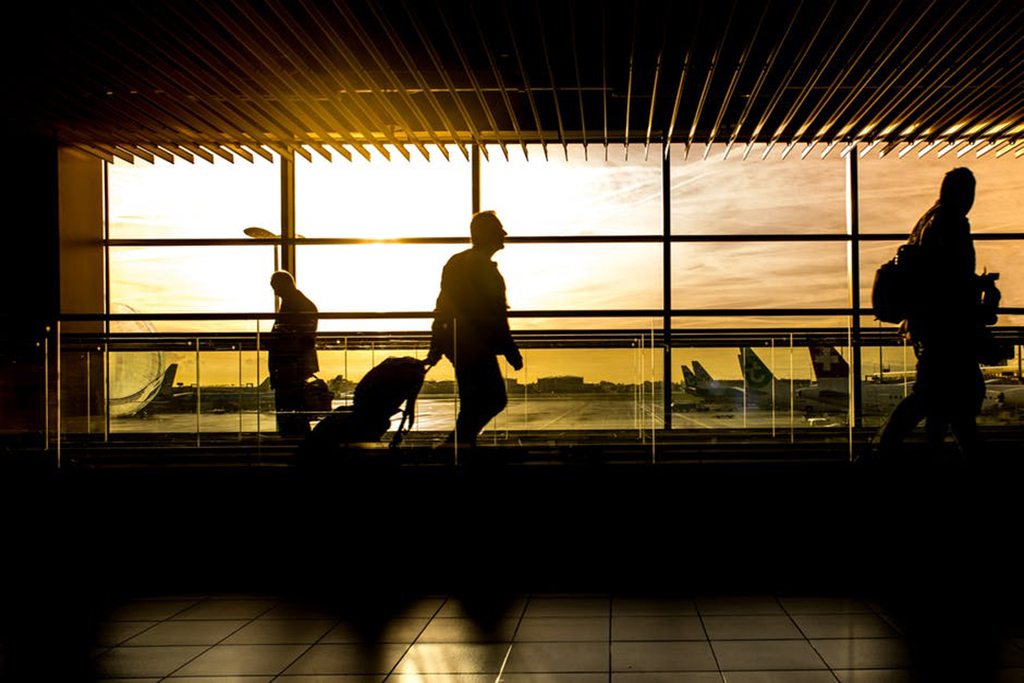Skift Take
The responsibilities of today’s corporate travel managers have become increasingly complex as new technology developments, global uncertainty, higher travel costs, and a growing focus on traveler satisfaction influence how employees travel.
This sponsored content was created in collaboration with a Skift partner.
Today’s corporate travel managers are faced with a number of new challenges compared to even only a few years ago. To better understand the challenges that corporate travelers often encounter and how they coincide with the increasing focus on business traveler satisfaction in today’s corporate travel industry, Skift spoke with Frank Dolce, director, global corporate travel and expense at OSI Systems, Inc., which manufactures systems in the security, healthcare, contract and electronics industries. Dolce manages around 2,000 travelers and oversees OSI’s global travel program, which covers 20 different countries and 40 different offices around the world.
Skift: What are some of the ways that corporate travelers’ needs have evolved in the last three to five years? How has that changed how you do your job?
Frank Dolce: Their needs have evolved with the technologies that are available to them when they’re traveling. You used to basically be out of touch when you were traveling. Now with Wi-Fi, laptops, iPads, and smartphones, everyone’s constantly connected and totally dependent on these tools.
Safety and duty of care have also become bigger issues in the last few years. 9/11 was a big wake up call for American businesses when it comes to duty of care. Companies didn’t know where their travelers were––it took them a while to put their systems in place to avoid this. We have sophisticated tracking tools to help us know where our travelers are and have a strict in-policy program so that we have the ability to locate travelers. I tell people, “If you book on your own, you’re on your own.” Travelers are exposed to the media and events happening around the globe, and luckily, they want to participate in the program.
Skift: There’s a lot of talk about improving traveler satisfaction today. What does traveler satisfaction mean to you? Is the end goal of improving traveler satisfaction to increase compliance, to increase productivity, or to increase overall employee engagement?
Dolce: It’s all of the above. Travel satisfaction has always been a major component of handling travelers, but we’re a very cost-conscious company. I know traveler managers that aren’t paying attention to cost at all––it’s all about traveler satisfaction. Obviously different industries have different expectations and it depends what your corporate culture is. Ours is extremely focused on the bottom line.
Skift: Do executives in your organization view corporate travel management objectives in terms of a procurement or traveler satisfaction mindset? How is this reflected in the way your performance as a travel manager is measured?
Dolce: As someone who’s responsible for cost/benefit ratios, we do spend time looking at costs all around. We have an all-coach policy when it comes to flights, even for travelers going overseas. Cost is something we’re very conscious of and focused on. Our company operates like a scrappy start-up. We do let people collect their frequent flier miles and points of course, and we do our best to leverage our relationships with our vendors to get status matching, bumping and other perks. Most of our road warriors do have elevated status with the airlines we work with, which is win/win for the traveler and for our company. My performance is definitely measured in terms of how I can save money. I think we’ve done a great job balancing traveler engagement and satisfaction with savings.
Skift: Where do you see the most significant pain points in the corporate employee travel journey?
Dolce: The security process, definitely, as well as the ever-shrinking coach cabin and seat sizes––hence the quest for higher status, where you can get a few more inches of legroom and a better experience.
Ground transportation has evolved where it’s not as big of an issue as it used to be. Some companies have concerns around ride hailing services, but travelers like them and they’re convenient. Hotels are getting better too. Limited service properties are much nicer today than they were 20 years ago, even properties like Holiday Inn Express and Marriott Courtyard. The rooms are very nice with a lot of amenities.
Skift: Where do you see the biggest impacts or opportunities from emerging technology on the traveler experience? How will emerging tech affect how you are able to perform your work responsibilities?
Dolce: Mobile has definitely been a game changer. People are looking for full-service mobile apps that are totally robust solutions. I think artificial intelligence is still very far away––I don’t see it hugely impacting our company anytime soon. Chatting with an agent over the internet would be very useful, but I don’t know how popular it would be for us.
Emerging tech has forced me to learn what products are out there and be able to answer the questions our travelers have about the platforms. It’s been 10 years since we’ve moved to an online booking tool. People were skeptical at first, but now it’s completely flipped around––people don’t want to pick up the phone to talk to an agent.
To learn more about how travel managers are achieving business traveler satisfaction and thinking about other issues top of mind, download the Skift Insights Deck: “Bringing Satisfaction Back to Business Travel”.
This content was created collaboratively by Egencia and Skift’s branded content studio, SkiftX.
Have a confidential tip for Skift? Get in touch
Tags: business traveler, corporate travel, egencia, interviews

